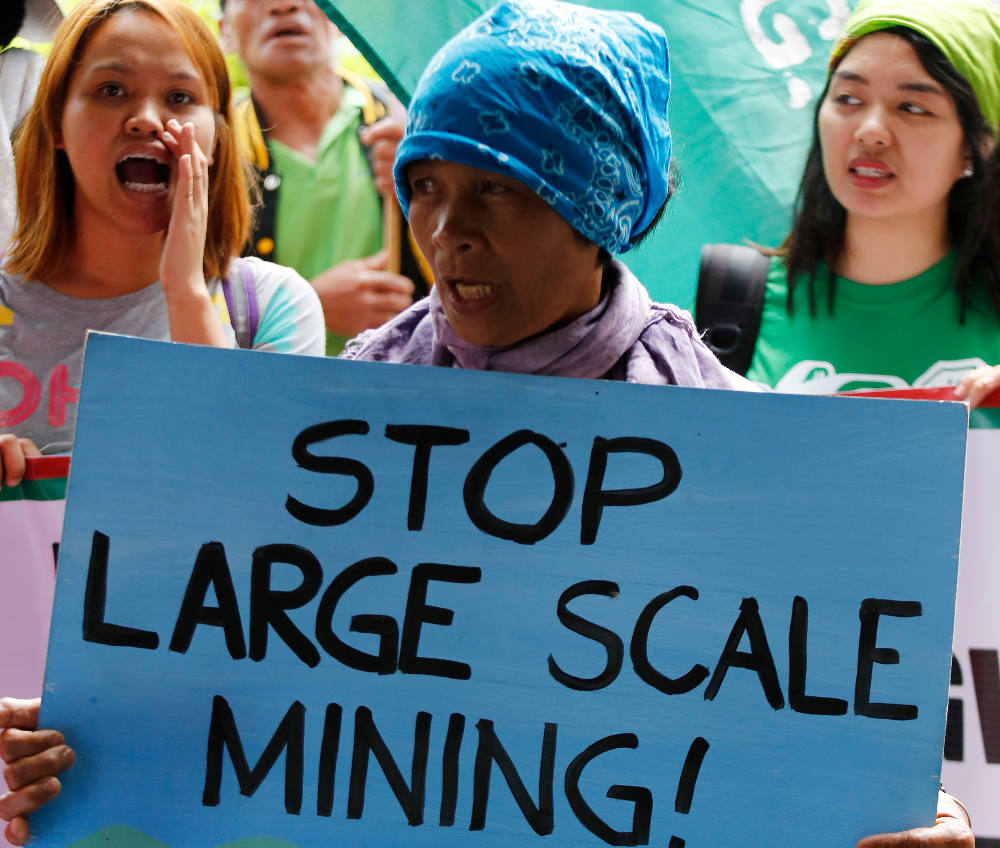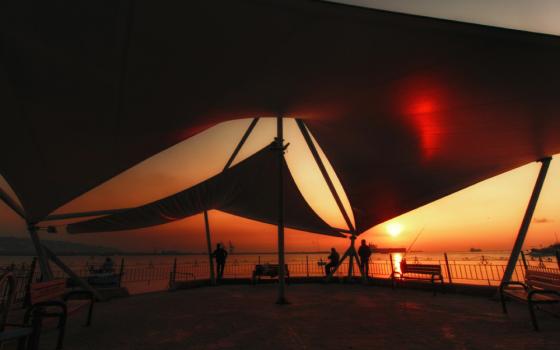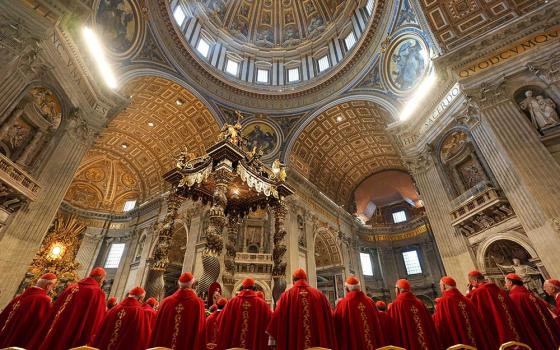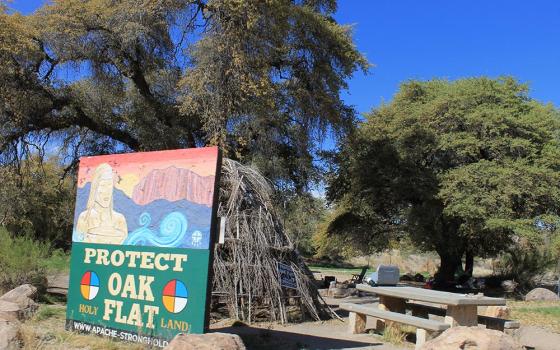
A Filipino indigenous Igorot tribe member holds a placard as she joins a protest in Manila in early February against large scale mining. (CNS photo/Francis R. Malasig, EPA)
Residents of a central Philippine mining town have set up camp outside the Department of Environment and Natural Resources office in Manila to dramatize their opposition to the re-opening of a mine in their community.
At least 30 people from Manicani Island in Eastern Samar province want assurances from the government that an open pit mine will remain closed, ucanews.com reported.
Religious leaders expressed support for the protesters by celebrating a Mass outside the main gate of the ministry Nov. 17.
F.r Lenox Nino Garcia of Borongan Diocese said the Mass was intended for the "enlightenment of government officials" about the effects of destructive extraction of natural resources.
The residents oppose a mining company's bid for a permit to operate the mine for another 25 years.
Mining on the island was suspended in 2002 after complaints filed by local people, including Bishop Crispin Vasquez of Borongan and other members of the clergy.
The faith-based group Philippine-Misereor Partnership has been calling on the government to declare the island a "no-go zone" for mining operations.
Meanwhile, members of the clergy from Marbel Diocese in the southern Philippines issued a statement Nov. 17 warning against a plan to open a coal mine in the province of South Cotabato.
"Whatever damage to be caused by coal mining will prejudice the spirit of the watershed reservation proclamation," read the priests' statement.
Advertisement
The statement was aimed at the province's legislators who are currently discussing a proposal to extract coal deposits in the town of Lake Sebu.
The Department of Energy has issued coal-operating contracts to at least two companies.
Departmental officials have said that coal mining is a major employer and accounts for most of the country's power generation at 27 percent. It also noted that coal exports bring the country in much needed revenue. The country has more than 504 million tons of coal reserves.
The church leaders, however, said coal mining should not be allowed in the province because of a standing open-pit mining ban under the province's environment law.
In a separate statement, Bishop Dinualdo Gutierrez of Marbel said if the project is allowed to proceed, it would displace up to 1,300 tribal people.
"It will be environmental plunder if coal mining will be allowed in that locality," he said.
There is a growing number of proposals for coal plants and coal mines in the country, with 59 coal plants and 118 mine permits at various stages of approval, activists said.







